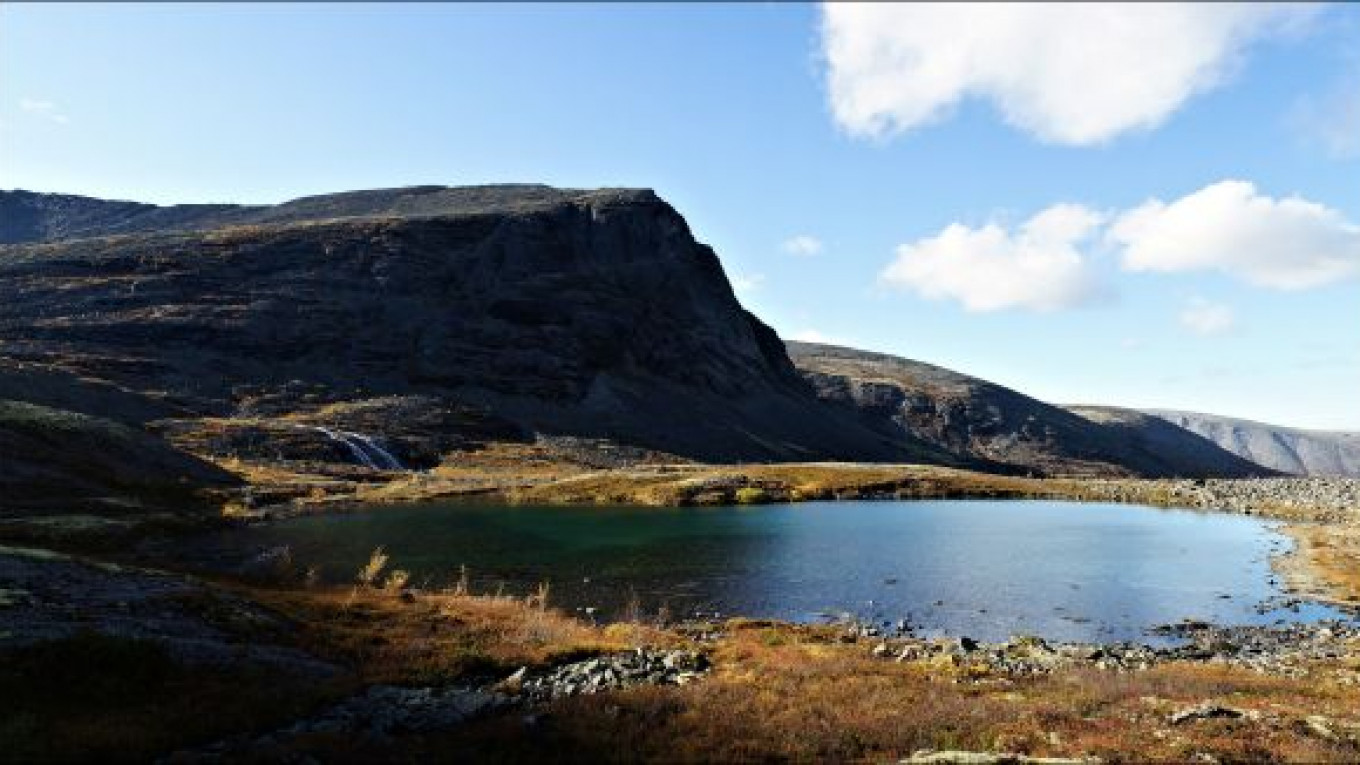The Natural Resources and Environment Ministry has called an emergency meeting after environmentalists walked out of a working group meant to resolve a dispute about road-building in the Murmansk region.
Minister Sergei Donskoi will personally chair a meeting of the group in Moscow next week, ministry spokesman Timur Chernyshev said.
The move brings to a head a dispute that has been simmering since the government granted rights in 2006 to the Northwestern Phosphorus, part of the Acron Group, to extract apatite and nepheline — both rare minerals — from the Khibiny Mountains.
Earlier this year the company started building a road between the Partomchorr and Oleny Ruchei deposits, across Umbozersky Pass on the Kola Peninsula, an area earmarked for a national park.
Environmentalists immediately complained that the Umbozersky Pass road would irreparably alter the relatively small mountain chain, kill the idea of the national park and destroy plans for developing ecotourism in the area.
A working group that includes representatives of the company, the Murmansk region administration and environmental groups was set up in June to resolve the issue.
The Barents Sea branch of the World Wildlife Fund Russia and the Kola Conservation Center quit the working group Monday, complaining that the body had become no more than an "instrument of legalization" of the project.
"We hoped that all the different options for transporting ore from the deposits would be looked at, and there are at least four of them," Oleg Sutkaitis, head of the Barents Sea branch of WWF Russia, said in an e-mail. "But the working group in fact turned out to be fictional. No one was interested in our opinion."
He added that 100,000 hectares of forest have already been cleared.
In an unusual move for a group that tends to seek accommodation rather than confrontation with the authorities, the WWF firmly laid the blame for the failure on Donskoi and Murmansk Governor Marina Kovtun.
Chernyshev said the ministry would issue no further comment before next week's meeting.
Despite lying inside the Arctic Circle, the mineral-rich Khibiny massif is one of the most popular mountain ranges in European Russia and attracts 40,000 to 50,000 tourists a year, a vast number compared with what most of Russia's national parks draw.
Northwestern Phosphorus has denied wrongdoing, accusing environmental organizations of spreading "false information" about forest-clearing in the area.
"Although neither NWPC nor its contractor, CJSC MurmanskTISIz, has cut a single tree in the neighborhood of the existing road, some publications are trying to paint NWPC as a destroyer of the future Khibiny national park and the area's environment," the company said in a statement on its website.
The statement continued: "Partly to blame is the lack of official information on the meetings of a working group established by the Murmansk regional administration to find solutions to issues of creating the national park and constructing the Partomchorr mine."
Related articles:
A Message from The Moscow Times:
Dear readers,
We are facing unprecedented challenges. Russia's Prosecutor General's Office has designated The Moscow Times as an "undesirable" organization, criminalizing our work and putting our staff at risk of prosecution. This follows our earlier unjust labeling as a "foreign agent."
These actions are direct attempts to silence independent journalism in Russia. The authorities claim our work "discredits the decisions of the Russian leadership." We see things differently: we strive to provide accurate, unbiased reporting on Russia.
We, the journalists of The Moscow Times, refuse to be silenced. But to continue our work, we need your help.
Your support, no matter how small, makes a world of difference. If you can, please support us monthly starting from just $2. It's quick to set up, and every contribution makes a significant impact.
By supporting The Moscow Times, you're defending open, independent journalism in the face of repression. Thank you for standing with us.
Remind me later.


